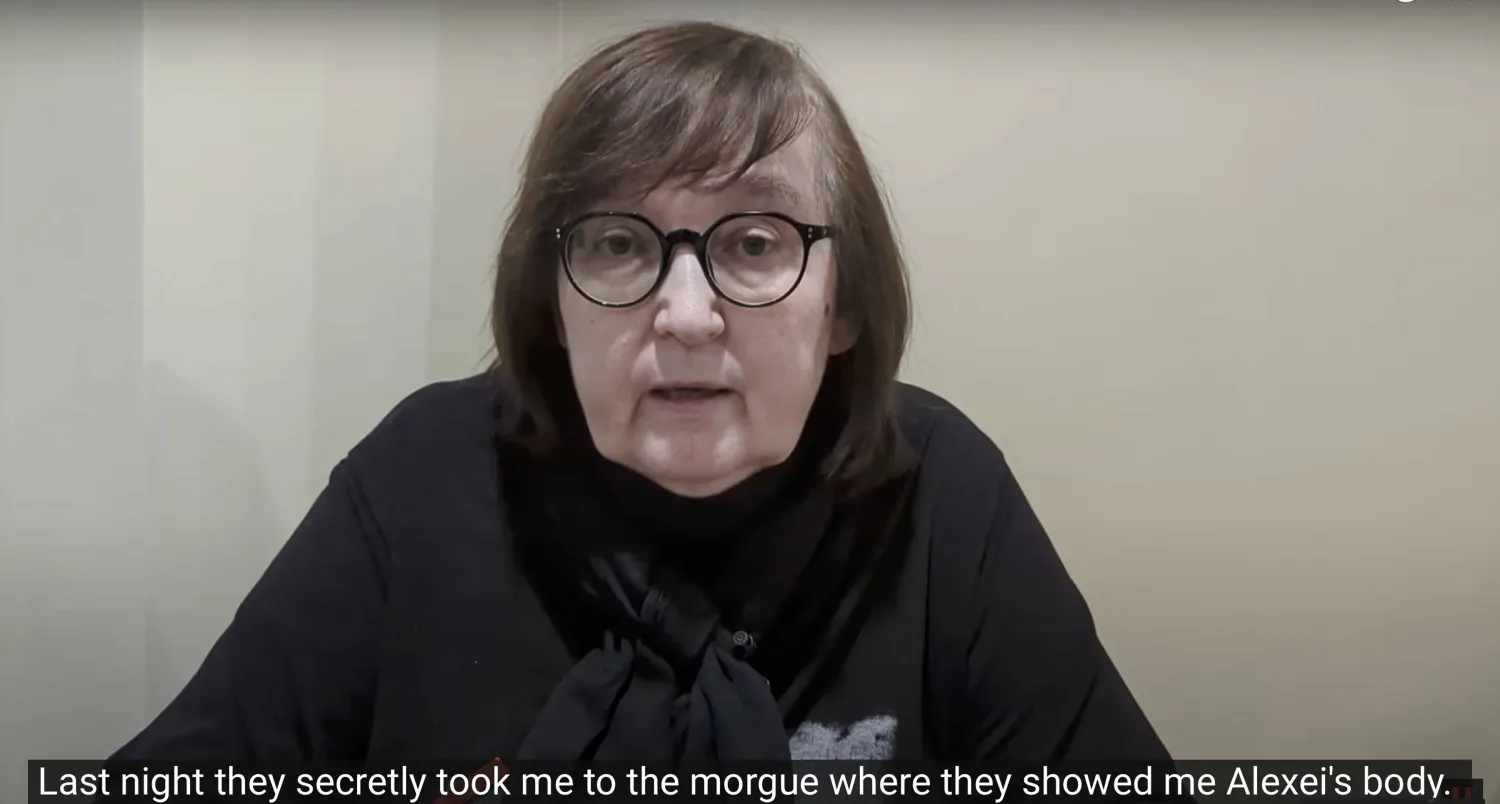The mother of Russia’s top opposition leader Alexei Navalny said Thursday that she has seen her son's body and that she is resisting strong pressure by authorities to bury her son in secret without a funeral.
Speaking in a YouTube video statement from the Arctic city of Salekhard, Lyudmila Navalnaya said investigators allowed her to see her son’s body in the city morgue. She said she reaffirmed the demand to give Navalny’s body to her and protested what she described as authorities trying to force her to agree to a secret burial.
“They are blackmailing me, they are setting conditions where, when and how my son should be buried,” she said. “They want it to do it secretly without a mourning ceremony.”
Navalny's spokesman Kira Yarmysh said on X, formerly Twitter, that his mother was also shown a medical certificate stating that the 47-year-old politician died of “natural causes.” Yarmysh didn't specify what those were.
Navalny, Russia's most well-known opposition politician, suddenly died in an Arctic prison last week, prompting hundreds of Russians across the country to stream to impromptu memorials with flowers and candles. The Russian authorities have detained scores of them as they seek to suppress any major outpouring of sympathy for Vladimir Putin's fiercest foe ahead of the presidential election he is almost certain to win.
Navalny’s mother has filed a lawsuit at a court in Salekhard contesting officials’ refusal to release her son’s body. A closed-door hearing has been scheduled for March 4. On Tuesday, she appealed to Putin to release her son’s remains so that she could bury him with dignity.
In the video released Thursday, Navalnaya said she had spent nearly 24 hours in the Salekhard office of the Investigative Committee, where officials told her that they have determined the politician's cause of death and have the paperwork ready, but she has to agree to a secret funeral.
Navalny survived an attempt to poison him in Siberia in 2020 with what Western laboratories said was a Russian-made nerve agent, Novichok. In prison since January 2021, he had endured long spells in solitary confinement.









